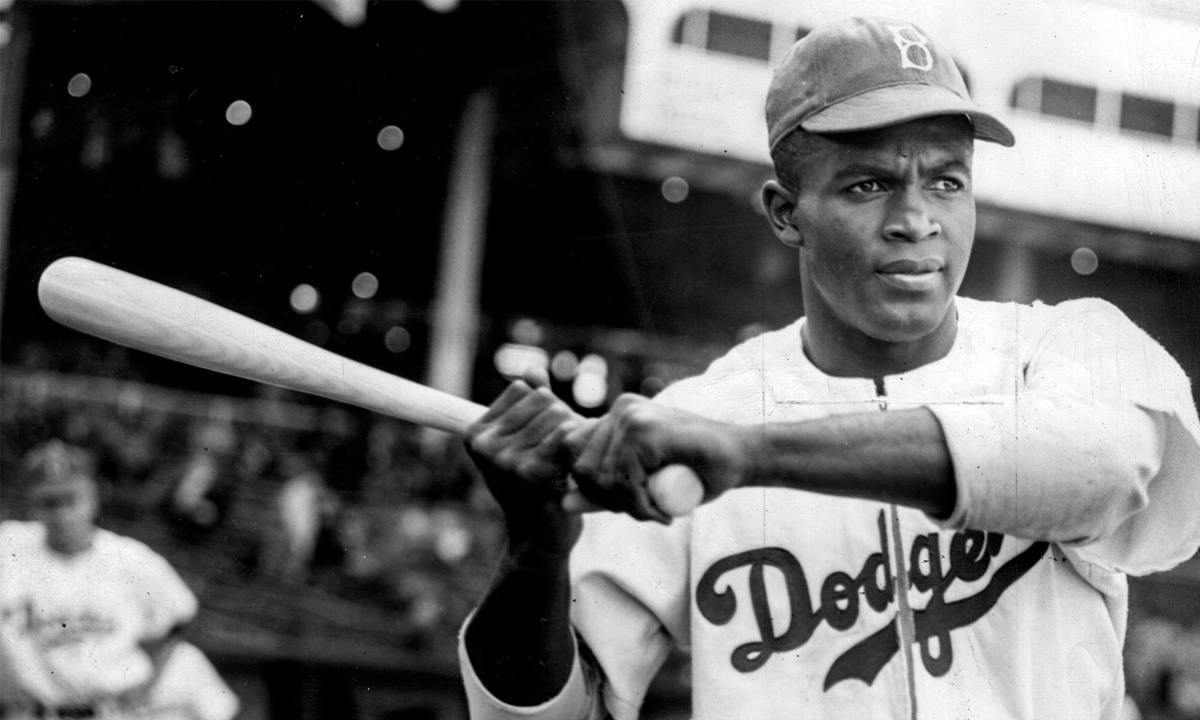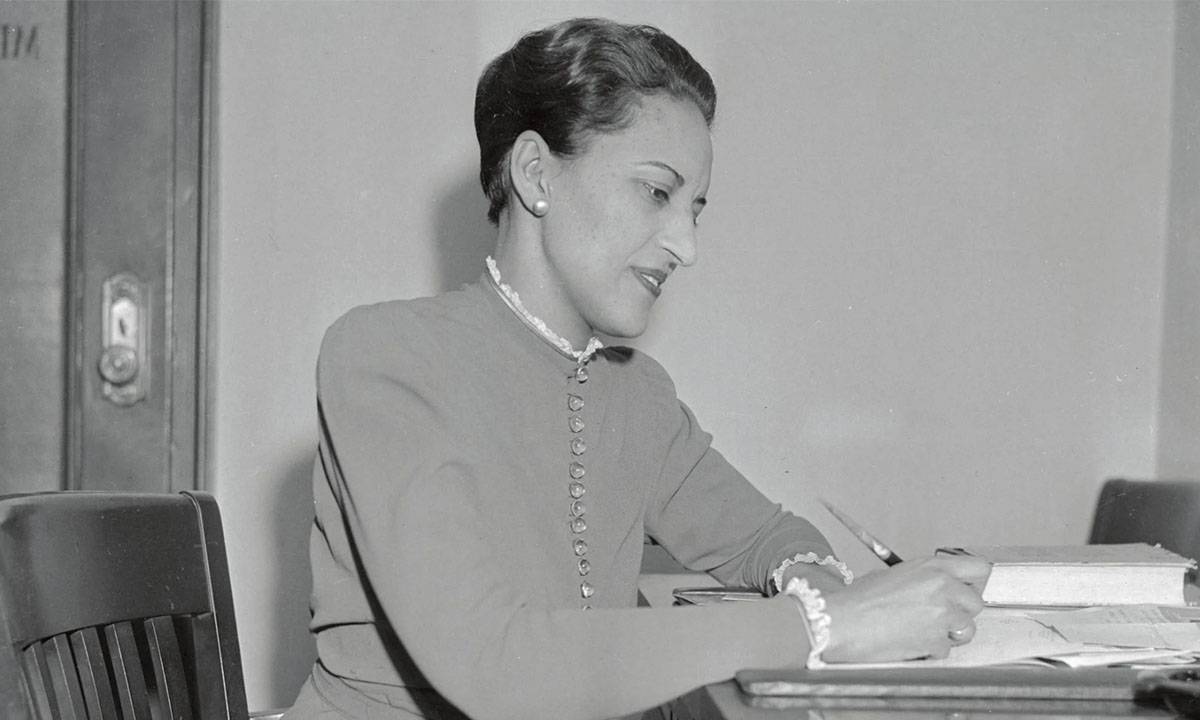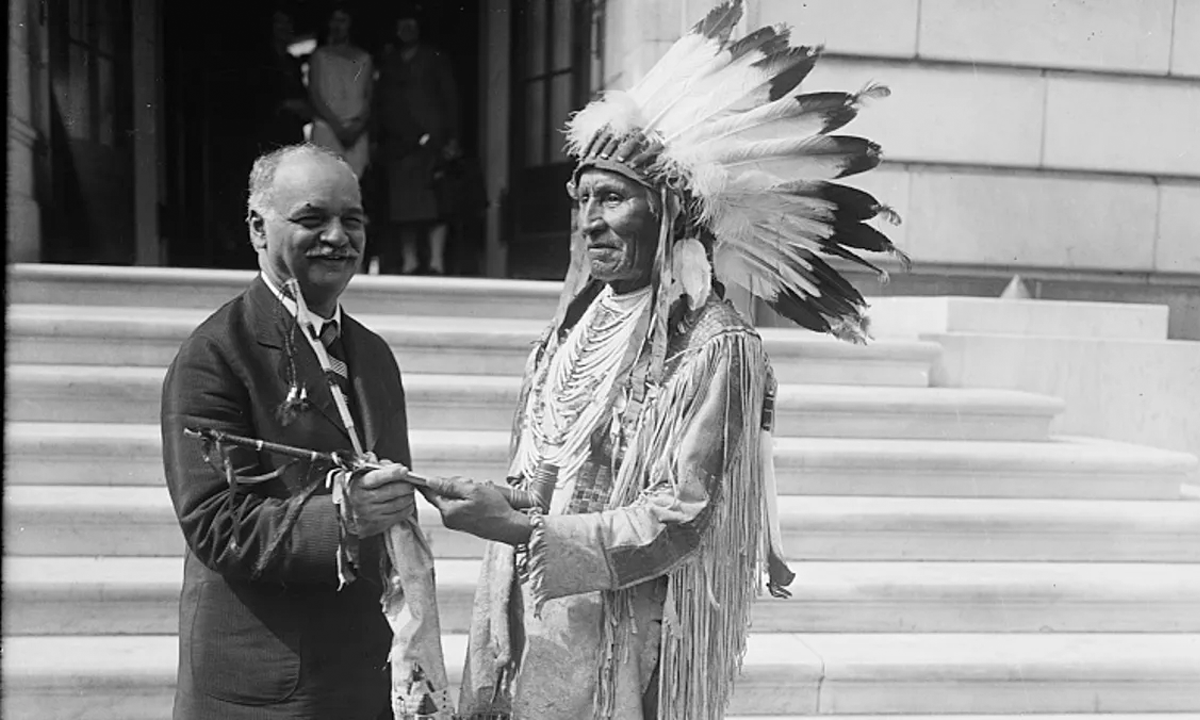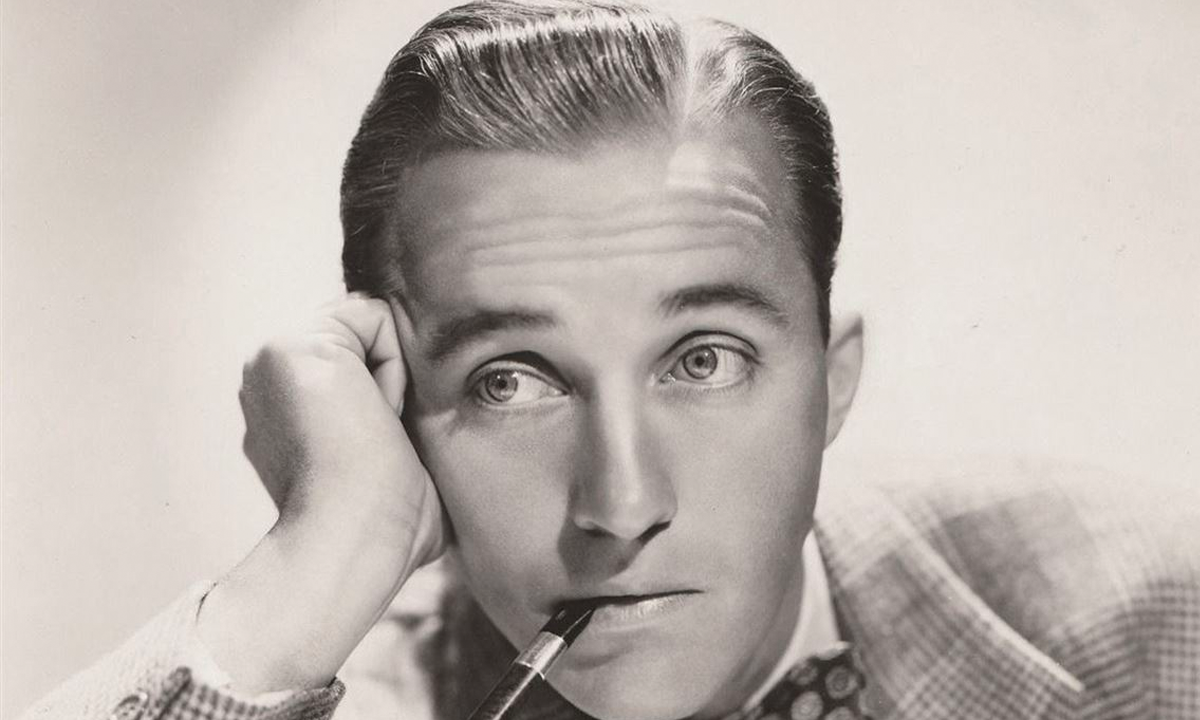Jack Roosevelt Robinson was born in 1919 in the Deep South to a sharecropper family, the youngest of five children. After his father left the family when Jackie was a year old, the family moved to Pasadena. Jackie’s mother worked a variety of jobs to support the family who took up residence at 121 Pepper Street in Pasadena. Jackie attended John Muir High School and Pasadena Junior College. His older brother, Matthew Robinson “Mac” who won a silver medal at the 1936 Berlin Olympics for the 200 m dash, encouraged him to get involved in sports. Jackie played four sports in high school (football, basketball, track and baseball) and was named the region’s Most Valuable Player for baseball in 1938.
Jackie Robinson went to UCLA. He was the first student to win varsity letters in four sports: football, basketball, track and baseball. He met his future wife Rachel, a nursing student, while at UCLA. He was forced to leave UCLA shortly before completing his degree due to financial difficulties. He moved to Hawaii to play a short season of football for the Honolulu Bears. He returned to Los Angeles to play running back for the LA Bulldogs, but his football career was cut short with Pearl Harbor and the US entry into WWII.
In 1942 Jackie Robinson was drafted into the US Army. He and several other black candidates applied to Officer Candidate School. Although the Army guidelines for OCS were race neutral, their applications were delayed as few black soldiers were admitted to OCS at that time. After protests by heavyweight boxing champion Joe Louis and intervention by civilian assistant aide to the Secretary of War Truman Gibson, the group was admitted to OCS. This resulted in a lifelong friendship between Robinson and Louis. Jackie Robinson was commissioned as a 2nd lieutenant in 1943. His military career was derailed in 1944 when he was court-martialed for refusing to sit at the back of an unsegregated Army bus line. During the inquiry into the incident, he challenged the investigating officer’s racist line of questioning. The officer subsequently recommended that he be court-martialed. After his commanding officer refused to proceed with the court-martial, Jackie was transferred to a different unit whereupon the new commanding officer promptly proceeded with the court-martial adding additional charges including public drunkenness although he did not drink. He was eventually acquitted of all charges by an all white panel of nine officers. Although his unit saw combat, his court-martial barred him from being deployed overseas and he never saw combat action.
After the WWII, Jackie Robinson returned briefly to the LA Bulldogs. He accepted a position as Athletic Director at Samuel Huston College in Austin, Texas. While at Sam Huston College, Jackie received an offer to play baseball for the Kansas City Monarchs, a Negro League team. He played a season with the Monarchs all the while looking to the Major Leagues. He tried out unsuccessfully for the Boston Red Sox. He was interviewed for three hours by President and General Manager of the Brooklyn Dodgers Branch Rickey. Rickey was looking for the right black player to integrate the Major Leagues who had the temperament to withstand the racial pressures. On October 23, 1945 Jackie Robinson formally signed his contract to play for the Montreal Royals, a AAA International League farm team for the Brooklyn Dodgers for the 1946 season with representatives from both the Royals and the Dodgers present. In 1946, Robinson moved to Florida to start spring training with the Montreal Royals.
Integration was difficult at best. The manager of the Royals had requested that Robinson be assigned to a different farm team. Rickey refused. Robinson was not allowed to stay at the hotel with the other players. He boarded with a local politician. Since the Dodgers did not yet own their own spring training facility, they were subject to the whims of local entities to allow the scheduling of games and training several of which turned down events that included Robinson. The stadium in Jacksonville was padlocked on game day allegedly due to lighting issues. As a result, Robinson was sent back to Daytona Beach. After pressure and lobbying by Rickey and other team officials, an exhibition game with the Brooklyn Dodgers was scheduled at the Daytona Beach’s City Island Ballpark. On March 17, 1946 Jackie Robinson was the first black player to publicly play for a minor league team playing against a major league team. Jackie Robinson had a great year with the Royals with a .349 batting average and a .985 fielding percentage. As a result, he moved up to the Brooklyn Dodgers the following year. Robinson played his first game for the Dodgers on April 15, 1947 making him the first black athlete to play Major League baseball since 1880. Although the racial harassment continued, he was able to play past all of that and his extraordinary talent became apparent. He soon became baseball’s darling. In 1949 he became the National League’s Most Valuable Player. In 1955, Jackie Robinson helped the Brooklyn Dodgers win the World Series in a match up against the New York Yankees. He played one more year and retired in January, 1957 after being traded to the New York Giants. In 1962, Jackie Robinson became the first black player to be inducted into the Baseball Hall of Fame. In 1972 the Dodgers retired his number “42”.
After leaving baseball, Robinson became an executive in the “Chock Full O’ Nuts” coffee chain as well as active in the business community promoting black-owned businesses and industries. He also participated in the establishment of the African-American owned Freedom Bank. He became a loud voice in the Civil Rights Movement challenging politicians from both sides of the aisle to support the Civil Rights Act of 1964. Robinson continued to criticize major league teams who were slow to integrate minorities into management and staff positions.
Jackie Robinson became involved in politics during the 1964 Presidential campaign as Nelson Rockefeller unsuccessfully campaigned for the Republican nomination. Robinson was one of six National Directors for the Rockefeller campaign. Rockefeller was subsequently reelected Governor of New York and named Robinson “Special Assistant for Community Affairs”.
Jackie Robinson was posthumously awarded the “Presidential Medal of Freedom” by President Ronald Reagan in 1984 and in 2005 President George W. Bush awarded him the “Congressional Gold Medal”. Jackie Robinson was a lifelong Republican.
Photo via JackieRobinson.com




